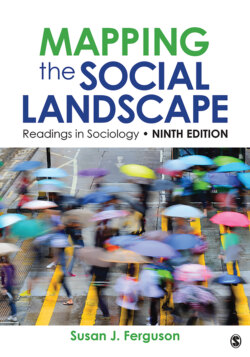Читать книгу Mapping the Social Landscape - Группа авторов - Страница 86
На сайте Литреса книга снята с продажи.
Anxieties and Strategies
ОглавлениеI have compared the professional middle class in Taiwan and their immigrant counterparts in the United States to examine how and why the practice of raising global children unfolds differently across social contexts, despite shared ethnic backgrounds and class positions. My research reveals two major factors that shape parental anxieties and strategies: First, the two groups of ethnic Chinese parents face different opportunity structures in local societies (ethnic majority in Taiwan vs. ethnic minority in the United States). Secondly, they identify different risks in today’s global economy that shadow their children’s future (competition with PRC youngsters vs. the decline of Western economic dominance).
Parents across the Pacific are inclined to seek transnational references—class peers around the globe—to define their meaning of security and to imagine their children’s globalized future. The upwardly mobile Taiwanese project a romanticized image about American immigration and childhood, and they seek membership in the global middle class by consuming childrearing and educational styles they perceive as fitting a Western ideal. Meanwhile, immigrant parents feel largely satisfied with their suburban American lives by comparing this version of a “happy childhood” with pressured middle-class childhood in Asia. Yet, they feel increasingly anxious about the new global order and thus look to the Asian middle class to help set a higher bar for their children’s academic performance.
These strategies for raising global children are not only rising among middle-class families in Asia, but also among North American and European parents who fear the possibility that their children might fall off the class ladder in the new global economy. Popular books pressure ambitious parents to “raise children to be at home in the world” by acquiring new tools and knowledge to discover the wisdom of “parenting without borders.” Children are encouraged to attend bilingual education or spend a “gap year” abroad to acquire “multicultural capital” or “transnational cultural capital.”
While distinct approaches to raising global children aim to open up a cosmopolitan future for the next generation, they may paradoxically reduce culture to essential qualities and create unintended negative consequences. For example, Taiwanese parents who cultivate Western cultural capital often idealize and glorify Western education, overlooking its friction and rupture with local institutions. Other immigrant parents idealize and reify their cultural heritage and create tension and conflict across generations. All parents strive to keep their children safe and successful in an increasingly connected and competitive world. Yet, their strategies intensify anxiety and insecurity not only among themselves but also among less resourceful families.
